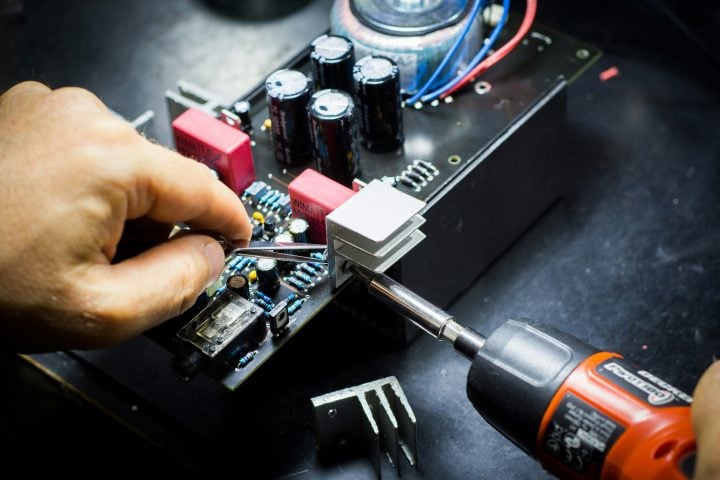Embarking on a journey into the realm of electronics can be an exciting and rewarding endeavor. Whether you’re a hobbyist, student, or aspiring professional, having the right tools at your disposal is essential for success. From soldering irons to multimeters, the world of electronics is vast, and having a well-equipped toolkit can make all the difference. In this article, we’ll explore the essential tools you need to start working with electronics and building your projects with confidence.
1. Soldering Iron and Solder
A soldering iron is a fundamental tool for joining electronic components together. Whether you’re assembling a circuit board or making repairs, a reliable soldering iron is indispensable. Look for a soldering iron with adjustable temperature settings to accommodate various types of solder and components. Additionally, invest in high-quality solder made of a lead-free alloy for strong, reliable connections. For more advanced projects, understanding and effectively working with PCB assembly components is crucial for ensuring high-quality, professional results in every project.
2. Desoldering Pump or Wick
Mistakes happen, and when they do, having a desoldering pump or wick on hand can save the day. These tools allow you to remove excess solder or correct soldering errors quickly and efficiently. A desoldering pump uses suction to remove molten solder, while a desoldering wick absorbs solder through capillary action. Both options are essential additions to any electronics toolkit.
3. Wire Cutters and Strippers
Wire cutters and strippers are essential for preparing and handling electrical wires and cables. Wire cutters allow you to trim wires to the desired length, while wire strippers make it easy to remove insulation from the ends of wires. Look for wire cutters with sharp, precision blades and wire strippers with adjustable jaws to accommodate different wire gauges.
4. Multimeter
A multimeter is a versatile tool that measures various electrical properties, including voltage, current, and resistance. It’s invaluable for troubleshooting circuits, testing components, and ensuring proper electrical connections. When choosing a multimeter, opt for a digital model with auto-ranging capabilities for ease of use and accuracy.
5. Breadboard and Jumper Wires
A breadboard is a prototyping tool that allows you to build and test electronic circuits without soldering. It consists of a grid of interconnected metal strips that provide a convenient platform for arranging components and making connections. Pair your breadboard with jumper wires, which are flexible wires with pins on either end, to establish connections between components quickly and easily.
6. Tweezers and Precision Screwdrivers
Precision is key when working with small electronic components, making tweezers and precision screwdrivers essential tools for your kit. Tweezers allow you to handle tiny components with ease and precision, while precision screwdrivers are necessary for accessing and securing screws in electronic devices and enclosures. Look for tweezers with fine tips and precision screwdrivers with interchangeable bits for versatility.
7. Power Supply
A reliable power supply is essential for providing the necessary voltage and current to your electronic circuits and devices. While batteries can suffice for some projects, investing in a benchtop power supply offers greater flexibility and control. Look for a power supply with adjustable voltage and current settings, multiple output channels, and built-in safety features to protect your circuits and components.
8. Helping Hands
Working with small components and intricate wiring can be challenging without proper support. Helping hands, also known as third hands, provide a stable platform for holding components, wires, and circuit boards in place while you work. Look for helping hands with adjustable arms and alligator clips for maximum versatility and ease of use.
Building and experimenting with electronics is an engaging and rewarding pursuit, but it requires the right tools to be successful. By equipping yourself with essential tools such as a soldering iron, multimeter, wire cutters, breadboard, and power supply, you’ll be well-prepared to tackle a wide range of projects with confidence and precision. Invest in high-quality tools, practice proper safety precautions, and enjoy the journey of exploring the fascinating world of electronics.
